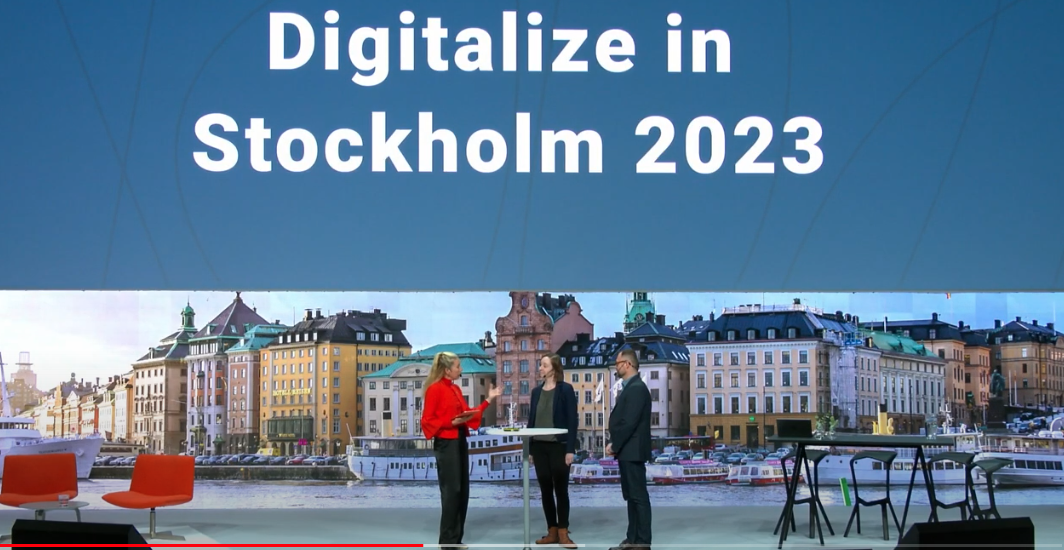
Digital transformation requires collaboration on all levels…
…from human-machine teaming to interdisciplinary and cross-sectoral interactions. The theme of “Collaboration and Conflict” took centre stage at Digitalize in Stockholm 2023, where international keynote speakers, as well as representatives from industry, academia and society, came together to discuss and explore this paramount issue.
Did you miss the event, or would you like to listen to Keynote talks, Panels and Research presentations again? Visit Digital Futures Youtube playlist Digitalize in Stockholm 2023.
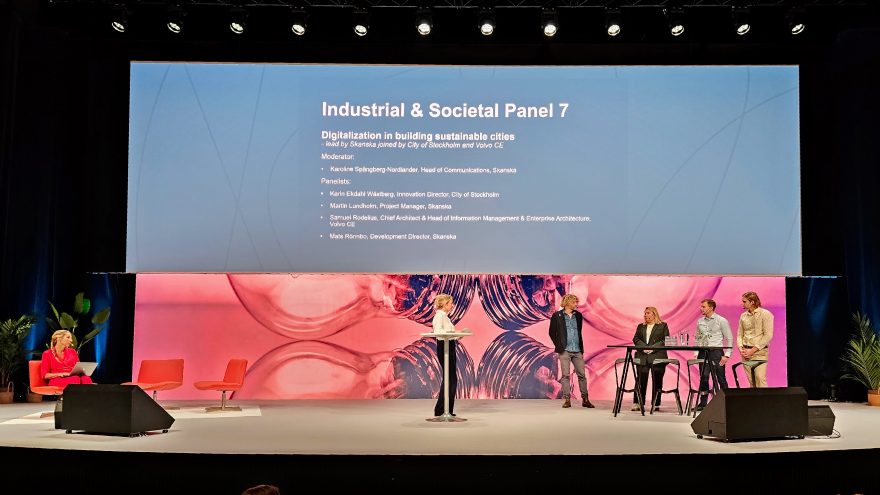
Digitalize in Stockholm 2023 on 18-19 October, promised to showcase cutting-edge advancements and innovations in the world of technology. The event, held in one of Stockholm’s most innovative buildings, Aula Medica, brought together industry leaders, experts, and enthusiasts to explore the transformative potential of digitalization. With a focus on Stockholm, a city renowned for its tech-savvy culture, it was all about knowledge sharing, networking, and inspiration. From artificial intelligence and machine learning to blockchain, the Internet of Things (IoT), and beyond.
On the first day, Moderator Beata Wickbom, together with the Chairs of the programme committee for the event, Airi Lampinen, Associate Professor, Department of Computer and Systems Sciences at Stockholm University and Aristides Gionis, Professor, Division of Theoretical Computer Science at KTH Royal Institute of Technology, welcomed the audience, from over 20 countries, being both onsite and online. Olle Burell, President of the Stockholm City Council, made an introductory note to open the second day.
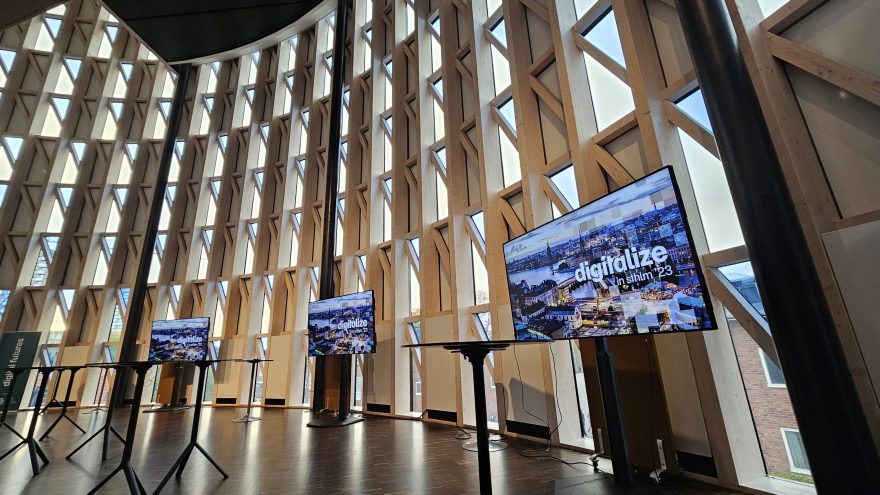
A lineup of renowned keynote speakers and thought leaders shared their knowledge and experiences. During the two days of the event, these experts shed light on the challenges and opportunities presented by digitalization, offering valuable insights into how businesses and individuals can navigate this rapidly changing landscape. Industrial and Societal panels included experts from, e.g. the City of Stockholm, Region Stockholm, AstraZeneca, Ericsson, Saab, Scania, Skanska, Xylem, Karolinska Institute, Volvo, AI Sweden, KTH Royal Institute of Technology, Stockholm University, RISE Research Institute of Sweden, Karolinska University Hospital, Locum, WASP and Vinnova.
Digitalize in Stockholm 2023 was not only a platform for knowledge sharing but also a place for hands-on learning. Onsite demonstrations provided attendees with the opportunity to explore emerging technologies firsthand during six Research Breakout Sessions focusing on topics such as Digitalized Medicine and Health Care, 6G Communication, Trustworthy Software and Systems, Power Systems, Smart Mobility, Education, Robots, Built Environment and of course use of AI.
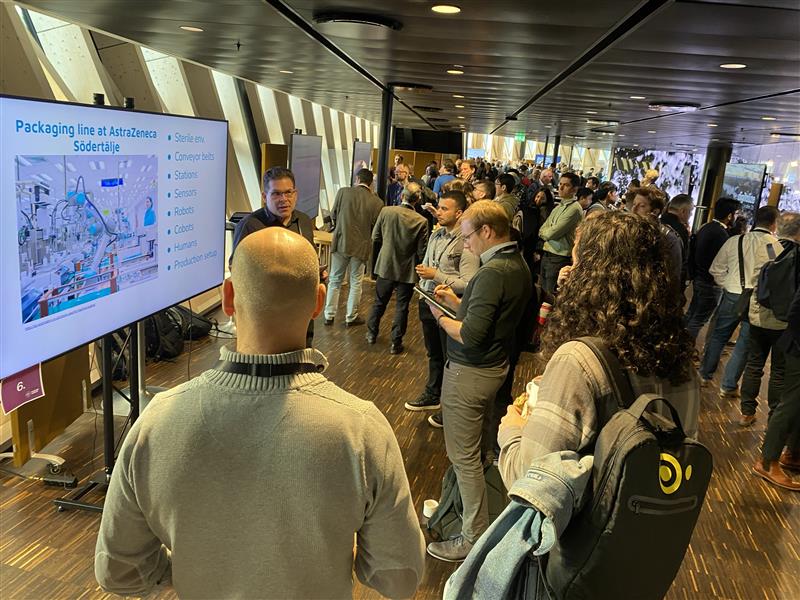
One of the key highlights of Digitalize in Stockholm 2023 is the networking opportunities it offers. Attendees could connect with like-minded professionals, potential collaborators, and industry leaders – interactions that may lead to valuable partnerships, business opportunities, and the exchange of ideas that can shape the future of technology. On both days, the audience could enjoy young scientists presenting their research during Postdoc poster sessions. The Partner Fair & Networking area provided an opportunity to meet and mingle with Digital Futures’ partners AstraZeneca, Saab, Scania and Xylem.
As the event takes place in Stockholm, it also serves as a platform to showcase the city’s thriving tech ecosystem and innovative spirit and provide a glimpse into the exciting projects and initiatives taking place in the region.
First out among the keynote speakers was Janne Lehtiö, a Professor in Medical Proteomics at Karolinska Institutet, who gave a keynote talk on data-driven precision medicine and diagnostics. Precision medicine aims to improve healthcare by utilizing molecular information, phenotypic and health data, and integrating complex data to generate insights for preventing or treating human diseases. The talk discussed the potential impact of precision medicine on healthcare and the challenges in implementing it for improved personal health. Link to YouTube
Professor João Barros, an expert in Electrical and Computer Engineering at the University of Porto, Portugal, discussed the impact of artificial intelligence (AI) on various cities and industries in his keynote titled “AI Hits the Streets.” He emphasized the combination of advanced connectivity and edge processing to generate real-time maps for driver assistance and autonomous mobility services. Barros highlighted the importance of running AI models at the edge in a distributed manner to handle the vast amounts of data involved efficiently. Link to YouTube
Dr. Narges Ahmidi, the Department Head of “Reasoned AI Decisions” at Fraunhofer IKS, delivered a keynote speech titled “Trustworthiness of AI: Are there rulers to measure?” exploring the criteria and assessments that AI developers must adhere to in order to ensure that their AI systems are dependable, secure, and safe, as required by regulatory agencies, notified bodies, and industry leaders. Ahmidi also addressed whether developers are allowed to establish their own evaluation methods or if there is a specific procedure that must be followed to assert the trustworthiness of AI accurately. Publication to be confirmed
Suresh Venkatasubramanian, Professor of Data Science and Computer Science at Brown University, USA, spoke about the landmark Blueprint for an AI Bill of Rights released in 2022 by the White House Office of Science and Technology Policy. In his talk “The AI Bill of Rights and What a Responsible Tech Future Looks Like”, Venkatasubramanian spoke about the Blueprint and its intent and reviewed how discussions on AI governance within the United States have evolved in the period since its release. Link to YouTube
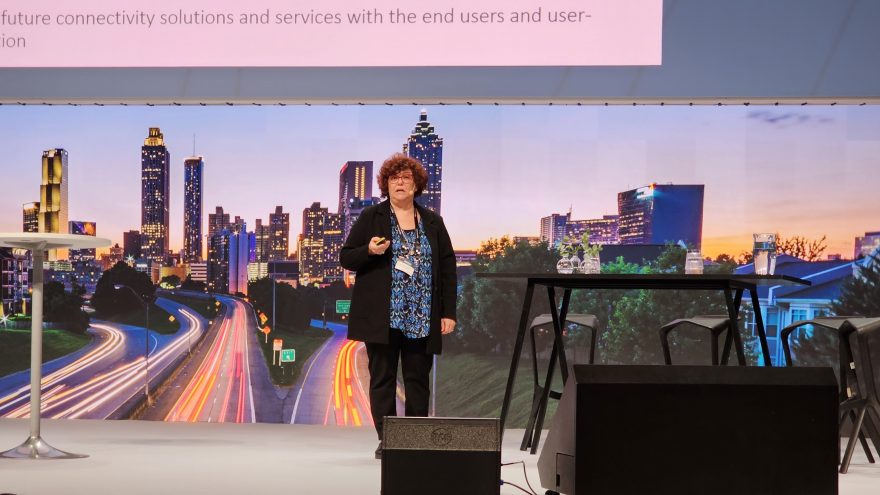
In the keynote titled “Co-creating the next generation connectivity infrastructures: Designing for a sustainable, inclusive and human-centric Future Internet”, Dimitra Simeonidou, Head of Bristol Digital Futures Institute and Professor and Director at the Smart Internet Lab, discussed co-creational, socio-technical approaches to future network innovation. Simeonidou reflected on lessons learned and presented initiatives aiming to develop co-creational innovation methodologies for the Telecommunications sector, addressing key societal challenges such as climate change, inequalities and trust. Link to YouTube
Last but not least, keynote speaker Danny Spitzberg from The Workers’ Algorithm Observatory and a Lead Researcher at Turning Basin Labs, Oakland, California, USA, could unfortunately not join us in person at Aula Medica, but kindly provided a pre-recorded presentation of his talk “Who Knows the User? Strategic Research, Standards, and Platform Audits”. Spitzberg discussed why research projects fail to deliver on their promise to influence software production and company practices and made a case for researchers to focus instead on creating standards – normative infrastructure that shapes collaboration with engineers, regulators, and other stakeholders. Link to YouTube
Watch Keynote speakers, Industrial and Societal Panel discussions and over 65 Research project presentations on the Digital Futures YouTube playlist Digitalize in Stockholm 2023.
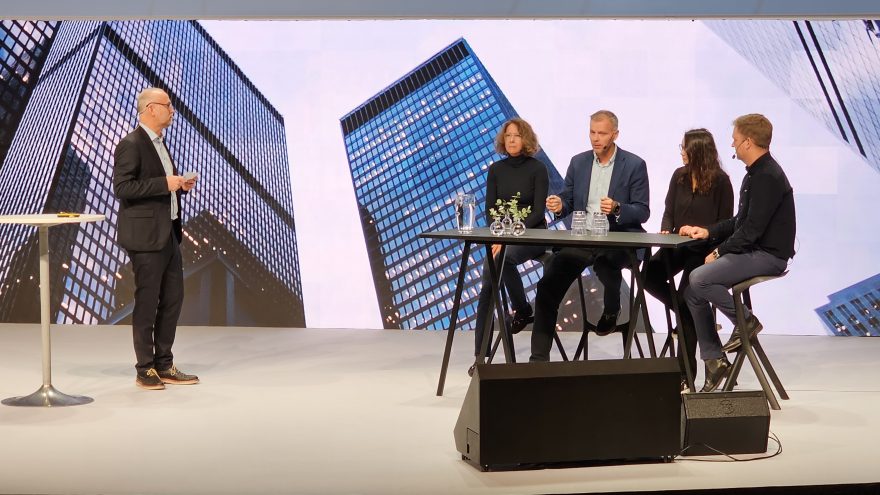
Digitalize in Sthlm 2023 was hosted and organized by Digital Futures and partners KTH, Stockholm University and RISE, in collaboration with the City of Stockholm, Region Stockholm, AstraZeneca, Ericsson, Saab, Scania, Skanska and Xylum.
Programme committee chairs:
Airi Lampinen, Associate Professor, Department of Computer and Systems Sciences at Stockholm University
Aristides Gionis, Professor, Division of Theoretical Computer Science at KTH Royal Institute of Technology.
Organizational chair:
Johanna Gavefalk, Chief Communications Officer at Digital Futures


